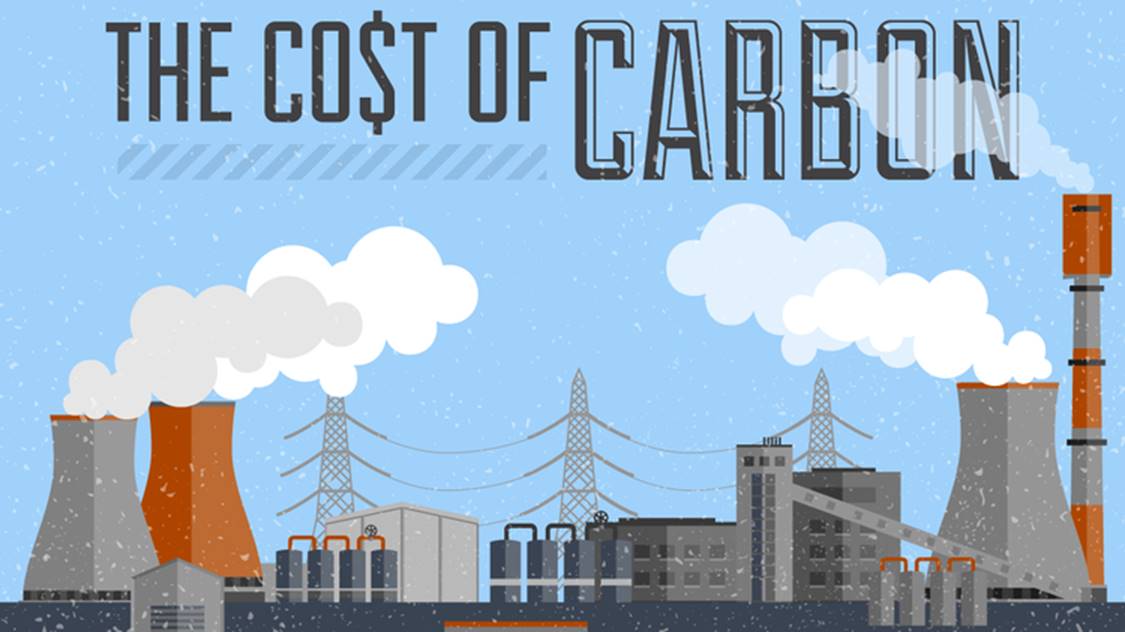Winners and losers in Oregon's carbon pricing debate
David Burdick
Fyinspiration?
Winners and losers in Oregon's carbon pricing debate
Jun 11, 2015, 10:05am PDT Updated Jun 11, 2015, 10:16am PDT
Portland Business Journal
· SHARE
·
·
·
·
·
A pair of bills that would put a cost on carbon emissions in Oregon got an airing in… more
A handful of Oregon senators gave cursory attention Thursday to a pair of bills aimed at lowering the state's carbon emissions.
The Senate Natural Resources and Environment Committee discussed two bills, one that would create a cap-and-credit program and another that would direct the Department of Environmental Quality to develop a program to meet the state's carbon reduction goals.
The committee's ranks were noticeably thin: Republican members were absent, attending a caucus meeting on what was a very busy day for lawmakers in Salem.
BUSINESS PULSE
What's Portland's best bar name?
RELATED CONTENT
Column: A transition from coal to clean energy
What should happen to the money when carbon polluters pay?
HOME OF THE DAY
Elegant Hand Scribed Log Home
Senate Bill 965 would establish a cap and dividend system that would levy a fee on polluters. It would return all the money to Oregonians in the form of a dividend supporters say could be worth $500 to $1,500 annually.
House Bill 3470 authorizes DEQ to establish a plan to meet the state's goal of reducing climate emissions to 1990 levels by 2020 and to 75 percent below 1990 levels by 2050. Climate activists want to see the voluntary goal made mandatory.
Interestingly enough, one of the chief arguments against pricing carbon is that it should be a federal, not state issue. To that end, a pair of Democrats debuted a new plan to tax carbon emissions at the federal level. Sens. Sheldon Whitehouse (D-R.I.) and Brian Schatz (D-Hawaii) unveiled their plan Wednesday at the American Enterprise Institute, reports Morning Consult.
Davis Burroughs reports the plan includes a major carrot:
"The bill proposes to reduce carbon emissions by more than 40 percent below 2005 levels by 2025, but offers up a big bargaining chip: lowering the top marginal corporate income tax rate from 35 percent to 29 percent."
Here are key points raised by both sides in the Oregon debate. Only invited speakers were allowed to participate:
Supporters:
SIGN UP FOR NEWSLETTERS & ALERTS
Receive Portland Business Journal'sMorning Edition and Afternoon Editionnewsletters and breaking news alerts.
- "I don't think there are any excuses not to act on climate disruption," said Julia Olson of Our Children's Trust. Olson offered political cover — polls show a "super majority" of Oregon citizens want to see action on climate change.
- Since California adopted a cap-and-trade policy, the state has added 491,000 jobs, exceeding the national average, said Sean Penrith, executive director of The Climate Trust. California's experience shows putting a price on carbon need not be a drag on the economy.
- Oregon is not meeting the greenhouse reduction goals it set in 2007. "We know we have a problem," said Tom Bowerman of Policy Interactive.
- Dan Golden of Oregon Climate said refunding carbon revenue to Oregonians could be good public policy. "The dividend gives us our own internal insurance policy, not unlike the Alaska Permanent Fund."
- Oregon can't achieve climate goals on renewable energy alone, which accounts for just a "sliver" of the global energy picture, said Philip Harding, Linus Pauling Chair in Chemical Engineering at Oregon State University. "We have to take it upon ourselves to impost controls."
- Oregon isn't going out on a limb, said Kristin Eberhard of the Sightline Institute. "By next year, one-fourth of all greenhouse gas emissions will have a price attached."
Opponents
- A new tax or charge on carbon-intensive fuels will harm a variety of industries that run on natural gas, said Edward Finklea, executive director of Northwest Industrial Gas Users, who said Oregon should focus on energy efficiency, switching customers off of coal and oil, investing in wind, solar and other renewable energy and supporting research into grid-scale energy storage and other innovations. "We think pricing carbon leads to serious equity concerns," he said.
- Putting a price on carbon will raise energy costs and could drive Northwest food processors to consider leaving the region, said Ian Tolleson, director of Government affairs for the Northwest Food Processors Association. "We don't have to be here. It is actually quite easy for a company to move production in and out of the state," he said. Tolleson emphasized that Oregon is a food export state and much of the processing industry's customer base is on the East Coast.
- The Legislature needs to consider the impact a new fee on energy would have on business, cautioned Mike Freese, vice president of Associated Oregon Industries. "It may be revenue neutral on paper but it's one more hurdle that hurts our ability to operate here."
Opponents
Edward Fink


